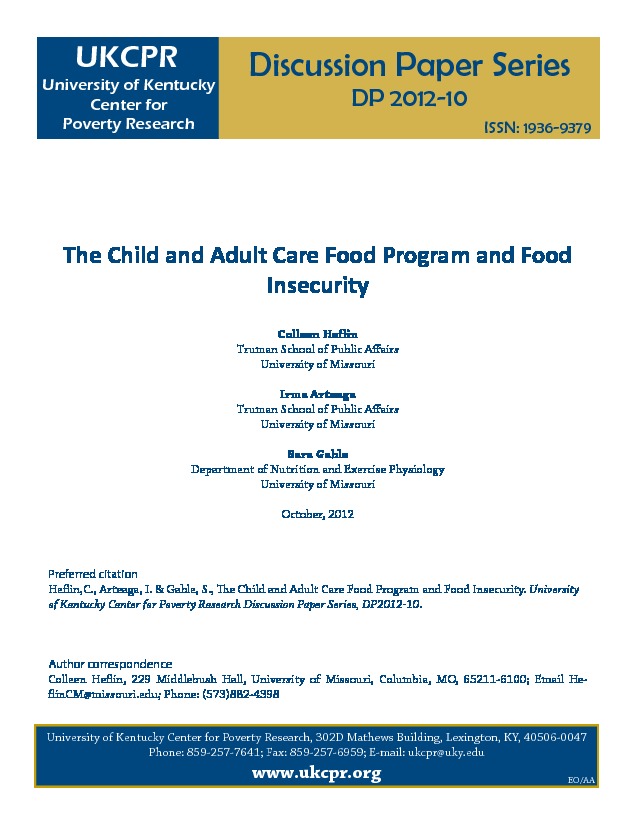The Child and Adult Care Food Program (CACFP) provides cash reimbursement to family day care, child care centers, homeless shelters, and after-school programs for meals and snacks served to children. While adults and school-aged children are eligible, the large majority of funding through this program is directed towards younger children. In 2009, 3.2 million children participated (versus 112,000 adults). In this research, we estimate the direct effect of provider participation in CACFP on household and child food insecurity of all income levels. We also explore the role of state institutional arrangements of CACFP on food security. We find that attending a child care setting that participates in CACFP has no effect on the risk of being food insecure. However, we do find that children in family care settings have a higher risk of experiencing childhood food insecurity if the provider participates in CACFP relative to similar children whose family care provider does not participate in CACFP. Given the growing body of evidence on the detrimental effects of nutritional deficiencies in early childhood, our study suggests that family day-care providers and child care centers that participate in CACFP may provide efficient intervention points for nutrition focused interventions.
Research
ChildrenPDF Thumbnail
